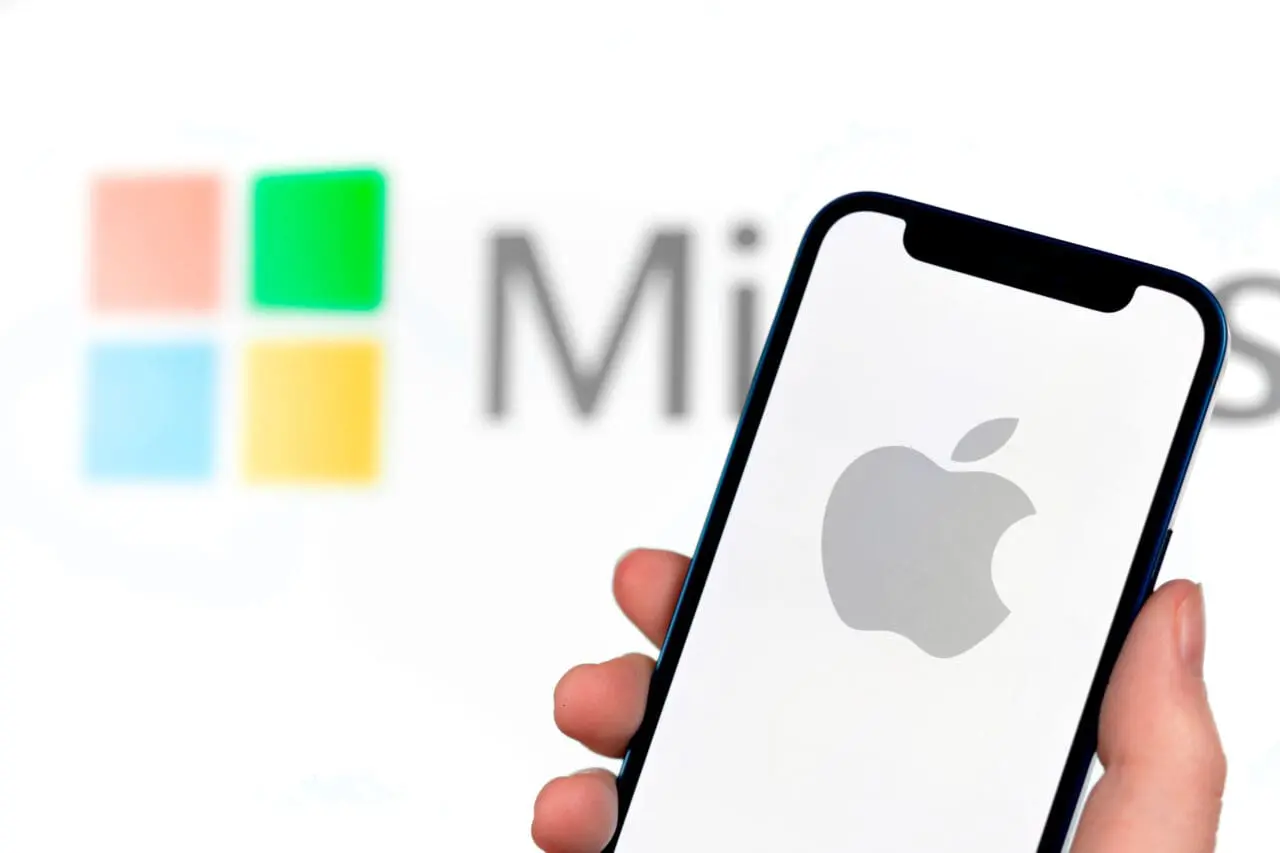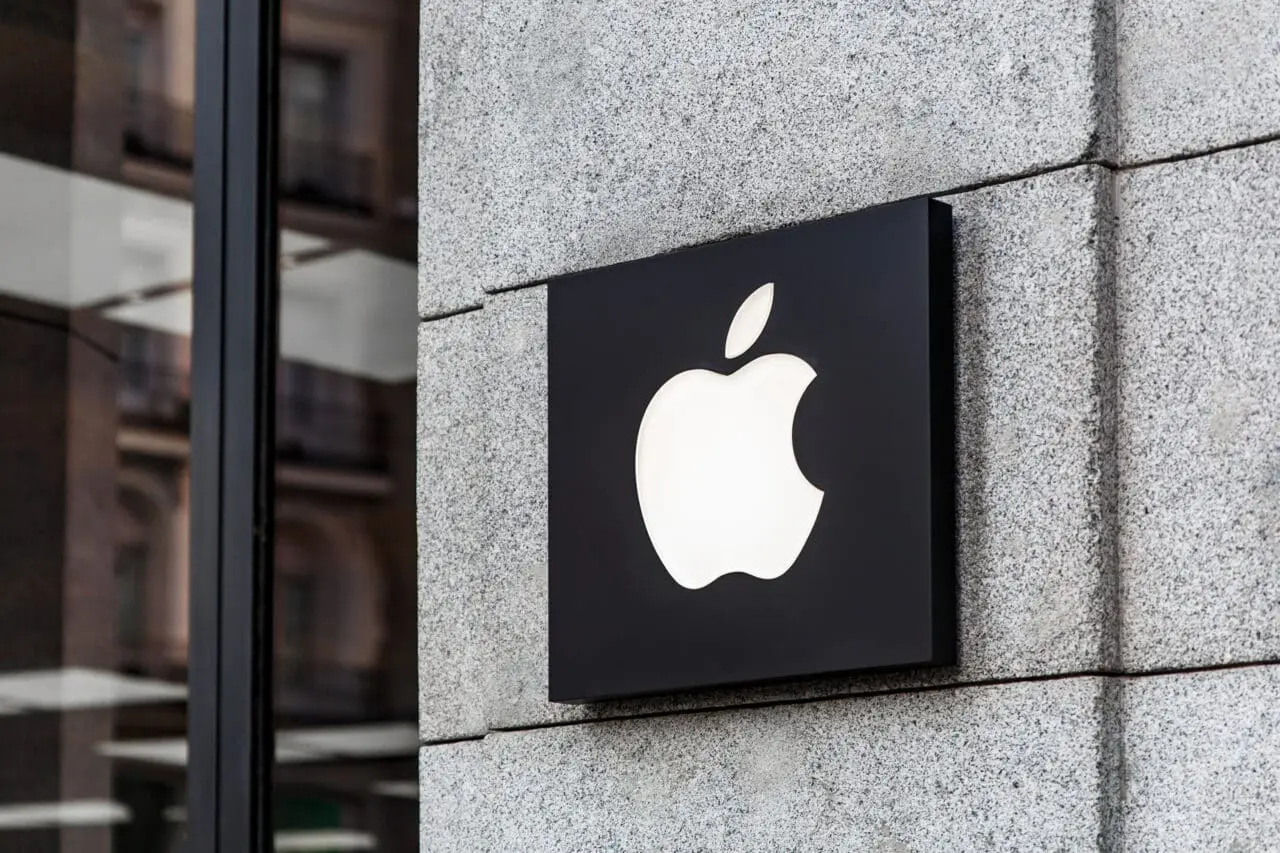

In a remarkable turn of events in the tech industry, Microsoft has surpassed Apple in terms of market capitalisation, becoming the more valuable company. This shift highlights the volatile and dynamic nature of the tech market, where leadership positions are celebrated yet susceptible to disruptive trends and strategic corporate moves. Microsoft’s consistent growth in stock value reflects its continuous innovation and focus on emerging technologies like Artificial Intelligence, indicating a broader industry trend that could reshape the balance of power between tech giants in the future.
Apple, the valuable public company and iPhone maker, has long enjoyed its status as a tech juggernaut. The staggering success of its flagship product, the iPhone, has been a key driver of its market capitalisation. However, recent trends have raised concerns about Apple’s future growth trajectory. The decline in smartphone demand, particularly impactful considering the iPhone’s significant contribution to Apple’s revenue, poses serious questions about the company’s ability to maintain its historically dominant market position. Intense competition from rivals, especially in China, a plateau in upgrades among consumers in saturated markets like the US, and challenges in the global landscape with part shortages have all contributed to a concerning dip in the iPhone maker’s stock price. It is imperative for Apple to diversify its revenue streams to address these challenges and secure its position as a valuable market leader.
Apple, while remaining the most valuable company in the industry, faces a confluence of challenges that have led to its recent setbacks. The slowdown in smartphone demand is just one facet of a multi-dimensional issue. Internally, Apple has been tackling the ramifications of market saturation, particularly in the US where consumers are less inclined to upgrade to the latest iPhone models as frequently as before. Externally, Apple is contending with a robust competitive landscape, with companies like Huawei capturing significant market share, especially in China. Compounded by global supply chain disruptions and part shortages, Apple’s heavy reliance on a single revenue source appears to be a vulnerability in its otherwise impeccable armour. These hurdles underscore the importance of product diversification and innovation in an industry where change is the only constant.
Recent trends in the technology industry have vividly illustrated the transformative power of Artificial Intelligence on corporate success. Microsoft, a longstanding player in this realm, has solidified its position at the forefront of the tech world through a strategic pivot towards AI. By integrating OpenAI’s innovative technologies into its suite of productivity tools, Microsoft is not just expanding its technical capabilities but also redefining the way businesses operate on a global scale. This bold move has empowered the company to challenge the likes of Google in terms of AI application, thereby contributing to its ascension above Apple in market valuation. Microsoft’s commitment to harnessing and investing in AI technology is a testament to Satya Nadella’s foresighted leadership and signals a new chapter in the tech industry’s evolution. With a market capitalization that surpasses all others, Microsoft stands as the world’s most valuable company, playing a crucial role in the global economy.
In a game-changing collaboration, Microsoft, in partnership with OpenAI’s ChatGPT, has revolutionised its suite of productivity software. By leveraging generative artificial intelligence, Microsoft has raised the bar for efficiency and innovation, transforming tools like Office 365. This move directly challenges Google’s dominance in productivity applications, signalling a shift in competitive dynamics. The incorporation of OpenAI’s advanced algorithms into Microsoft’s software enhances user experience with smarter features, redefining the future of workplace technology. With brief periods of trading sessions, Microsoft is pushing the boundaries of what business software can accomplish, solidifying its position as a frontrunner in the industry.
As Microsoft vies for technology supremacy, its strategic diversification into cloud computing and gaming has proven to be a game-changer, reinforcing the company’s upward trajectory in market share value. Currently, as the most valuable public company, Microsoft’s market capitalisation stood strong against Apple’s. During the trading session, Microsoft’s stocks showcased their resilience and potential for growth. The launch of Azure cloud services carved out a substantial niche for Microsoft in a sector dominated by Amazon Web Services, offering a competitive edge that attracted a wide array of enterprise customers. In addition, Microsoft’s investment in the gaming industry, particularly through acquisitions like that of Xbox and the pursuit of gaming behemoth Bethesda, has expanded its footprint beyond traditional tech realms. These calculated advancements, which resonate with Satya Nadella’s forward-thinking leadership, signify Microsoft’s readiness to not only challenge competitors across various fronts but also reimagine its revenue streams and fortify its financial stature in an ever-evolving digital landscape.
The past ascendancy of Microsoft over Apple, more than a simple shift in market capitalisation, indicates a shifting technological paradigm that could profoundly impact businesses. Microsoft’s aggressive investment in cloud computing and artificial intelligence, as well as its expansion into the gaming sector, suggests a future where a broad spectrum of services and products, including those from chatbot maker OpenAI, could streamline and enhance business operations. This presents companies with new opportunities to leverage Microsoft’s integrated AI capabilities, increase productivity, utilise Azure’s robust cloud infrastructure for digital transformation, and tap into the ever-growing gaming industry for marketing and customer engagement. Microsoft’s rise to the top spot reflects the broader industry trend towards a more diversified, service-oriented technology landscape that businesses must navigate to stay competitive and drive sales.
The recent landmark partnership between Microsoft and OpenAI, known for their chatbot GPT-maker OpenAI, is now facing intense scrutiny from regulatory bodies. While this collaboration paves the way for groundbreaking advancements in AI technologies, concerns have been raised about potential antitrust issues. With Microsoft’s leading position in the market and exclusivity in AI applications, there is growing unease about the potential stifling of competition and innovation, prompting calls for a rigorous review. This antitrust probe not only puts pressure on the partnership but also has the potential to shape future regulations in the rapidly advancing field of AI. Such regulations could impact business entities that heavily rely on these technologies for a competitive edge, including sales and potentially impacting Apple’s market capitalisation.
With Microsoft’s strategic diversification and its strong presence in AI and cloud computing, Apple is under increasing pressure to redefine and expand its product portfolio to stay competitive. While Apple has excelled in hardware innovation, the evolving tech landscape now demands agility and a wider range of services. By exploring new markets and enhancing its ecosystem, particularly in areas such as AR, healthcare technology, and autonomous systems, Apple can secure its market position. Investing in proprietary technology and considering strategic partnerships, similar to Microsoft’s collaboration with ChatGPT maker OpenAI, would further ensure Apple remains a symbol of innovation. Additionally, the comparison of Microsoft and Apple’s market value highlights the need for Apple to adapt and explore new avenues, including Windows, to secure its future as a tech leader.

This website uses cookies to improve your experience. Choose what you're happy with.
Required for the site to function and can't be switched off.
Help us improve the website. Turn on if you agree.
Used for ads and personalisation. Turn on if you agree.
This website uses cookies to improve your experience. Choose what you're happy with.
Required for the site to function and can't be switched off.
Help us improve the website. Turn on if you agree.
Used for ads and personalisation. Turn on if you agree.